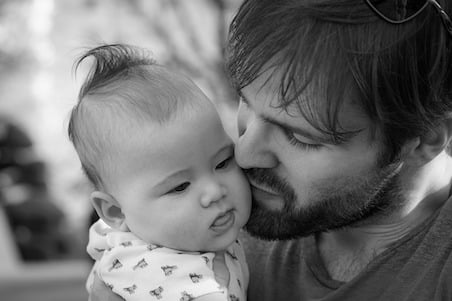What Does Child Support Enforcement Say about Responsible Fatherhood?
2 min read
Date Published: 10/19/2016
Last Updated: 01/09/2018
National Fatherhood Initiative Blog / Latest Articles
2 min read
We receive a lot of emails and phone calls from dads and moms angry about what they perceive as unfair child support orders. Many non-custodial dads in particular think the child support enforcement (CSE) system is rigged (e.g. favors moms) and doesn't appreciate how important their involvement is in the lives of their children.

The good news is CSE agencies at the state level are doing more to help non-custodial dads create an affordable enforcement order that helps them meet their support obligation. Indeed, many states have initiatives, for example, that reduce a dad's arrears in exchange for the dad participating in a responsible fatherhood program or other activities necessary in meeting his obligation (e.g. job training). Earlier this year, in fact, I was a guest speaker on a webinar conducted by the National Child Support Enforcement Association (a membership organization of CSE professionals) that highlighted several states with exceptional initiatives.
It would be difficult for states to implement such initiatives without the support of CSE at the federal level. So I wondered what exactly the federal Office of Child Support Enforcement (OCSE) says about the importance of responsible fatherhood programs.
More than you might think.
I had to look no farther than OCSE's National Child Support Strategic Plan for 2015-2019. The foundation of the plan rests on five principles that emphasize a family-centered approach to CSE. Each principle has a number of goals. Two of those principles highlight the important OCSE places on responsible fatherhood programs.
These principles and others reflect an evolving OCSE that recognizes:
CSE at the federal and state level is anything but perfect. Nonetheless, since I started working at NFI more than 17 years ago, I've seen a significant change in the emphasis CSE places on the importance of dads and the role of responsible fatherhood programs in connecting dads to their children.
Do you operate under the assumption that neither the OCSE nor your state's CSE office cares about the importance of dads?
Have you investigated whether there are family-centered efforts underway in your state or community to help dads meet their child support obligation?
Are you a dad looking for help? Please visit our Fatherhood Program Locator™ and enter your city and state on the map to find programs and resources in your community.
Date Published: 10/19/2016
Last Updated: 01/09/2018
Download this free guide for a proven 7-step roadmap—from making the case and securing funding for your program, to launching and measuring real results!


Train Your Staff
Fatherhood Programs
Fatherhood Data
© 2026 National Fatherhood Initiative®. All rights reserved.